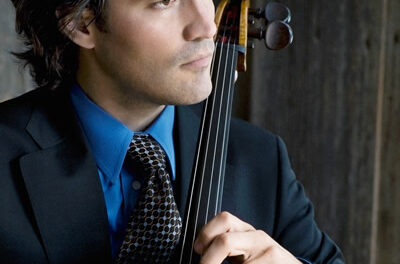It would be a disservice to the other tremendous productions of their 2012-13 mainstage season to say that PlayMakers Repertory Company saved the best for last, but their presentation of Cabaret is probably the most ambitious and one that has people scrounging for a rapidly dwindling supply of tickets. DirectorJoseph Haj, who is also Artistic Director of PlayMakers, had the difficult task of balancing taking the best from the numerous theatrical productions of Cabaret as well as the 1973 film that won eight Academy Awards and also putting Playmakers’ own imprint on this harrowing story. He, and all participants both on and off stage, succeeded magnificently.
At its core, Cabaret is a story of good times gone bad, people not recognizing dangers lurking beneath their self-absorbed pleasures and, perhaps most distressing of all, those who do see but choose to ignore the obvious beginnings of horrific events in order “to get along.” But, that is the dark side, somewhat hidden beneath the surface. What we experience, for the most part, is great music, big production numbers, simulated sex, and life as a cabaret. Leave your troubles outside and come join us at the Kit Kat Club, Berlin, 1931.
Upon entering the theater of a new PlayMakers production, I am always amazed by the incredible set design, this time by Marion Williams, and what is accomplished in a small space. This set features an open stage with a beautiful wood floor, part of which moves and has both props and actors coming and going through the floor. At the rear of the stage are eight musicians, directed by Mark Hartman, on a small, crowded, slightly elevated stage. Above it all are four distinct cube-like rooms that for most of the play serve as brief respites from the mostly frenetic action below.
The action starts innocently enough on a train as we meet Cliff Bradshaw — played with great ordinariness in this sea of decadence by John Dreher — an American writer traveling to Berlin to work on his novel. He befriends Ernst Ludwig (Brett Bolton), who is, unbeknownst to Cliff, a budding Nazi. Soon comes what we have come to see: the emcee for the evening. Joel Grey won an Oscar for this portrayal in the movie and his performance has become iconic, so it was an enormous theatrical achievement for Taylor Mac to make this part his own. His accent was authentic and well-modulated — something not consistent with a few of the other actors — and he straddled the border of menacing and fun with delicious abandon. The opening number “Wilkommen,” led by the Emcee and the troupe of Cabaret Girls and Boys (and indeterminate) dancers, was our entry into the Kit Kat club and the “life is a cabaret” ethos.
After the Emcee, the other lead part is Sally Bowles, featured singer of the club, played here by Lisa Brescia. She has a wonderful stage presence and sings beautifully with great passion and attention to the emotion of the song, but I felt her interpretation of the character lacked the danger and heartlessness needed. Her second act opener “Maybe This Time” was especially convincing and personal as she sang almost without any movement sitting on a bed.
Another subplot involves the relationship between the older owner of a boarding house, Fraulein Schneider (Julie Fishell), and a Jewish fruit-shop owner, Herr Schulz (Jeffrey Blair Cornell). They represented two of the faulty outlooks during the early period of the ascendance of the Nazi party. Schulz, although he saw some of the signs, dismissed it and said, “This will pass.” Schneider, pragmatic and fighting for her livelihood, reasoned that, “I cannot fight this; I would lose my license to rent rooms.” I found this pairing, and these actors, amid the lavish production numbers and turmoil, to be the most affecting and well-done of the musical. Their performance of “It Couldn’t Please Me More” in response to Schulz bringing Schneider a special gift was hilarious, touching, and priceless.
Like the great scene in the movie, it is not until we hear a young child singing “Tomorrow Belongs to Me” that we get the first inkling of the nascent horror. This eventually expands during the engagement party for Schulz and Schneider when Ernst Ludwig, upon discovering Schulz is Jewish, erupts in an ant-Semitic tirade. When the Emcee, who has been above politics all this time, at the end of his comical number “If You Could See Her” where he is singing to a gorilla, takes a dark turn, you know that that society has collapsed.
Despite all of that, people still refuse to see. Like waiting for two hours in Messiah to hear the “Hallelujah Chorus,” it is near the very end when we get to hear the practically anthemic song “Cabaret” sung by Sally Bowles. But this would not be a “stick you head in the sand” ending by any means. As the play began on a train, it too ended there with a haunting finale. The chill running up spines was nearly audible.
Cabaret continues through Sunday, April 21. For more details on this production, please view the sidebar.












